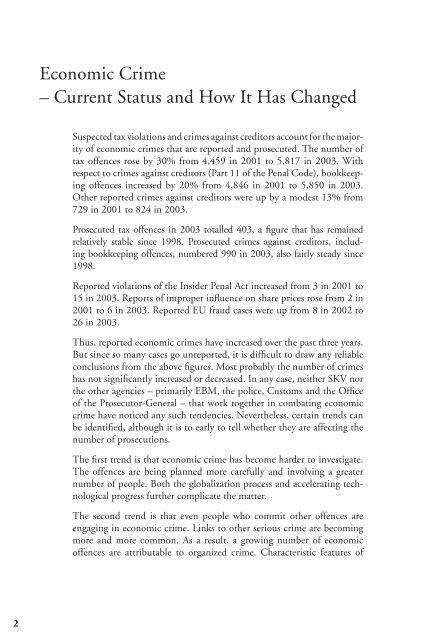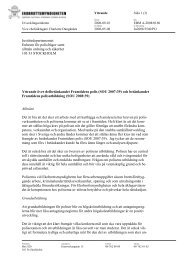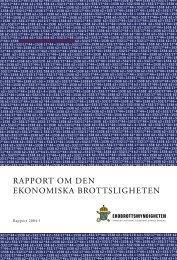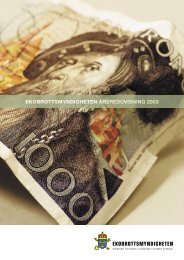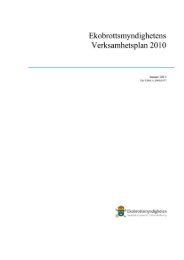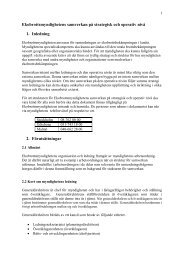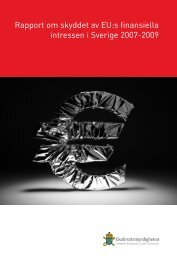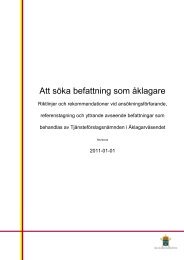Economic crime report 2004 - Ekobrottsmyndigheten
Economic crime report 2004 - Ekobrottsmyndigheten
Economic crime report 2004 - Ekobrottsmyndigheten
You also want an ePaper? Increase the reach of your titles
YUMPU automatically turns print PDFs into web optimized ePapers that Google loves.
<strong>Economic</strong> Crime<br />
– Current Status and How It Has Changed<br />
Suspected tax violations and <strong>crime</strong>s against creditors account for the majority<br />
of economic <strong>crime</strong>s that are <strong>report</strong>ed and prosecuted. The number of<br />
tax offences rose by 30% from 4,459 in 2001 to 5,817 in 2003. With<br />
respect to <strong>crime</strong>s against creditors (Part 11 of the Penal Code), bookkeeping<br />
offences increased by 20% from 4,846 in 2001 to 5,850 in 2003.<br />
Other <strong>report</strong>ed <strong>crime</strong>s against creditors were up by a modest 13% from<br />
729 in 2001 to 824 in 2003.<br />
Prosecuted tax offences in 2003 totalled 403, a figure that has remained<br />
relatively stable since 1998. Prosecuted <strong>crime</strong>s against creditors, including<br />
bookkeeping offences, numbered 990 in 2003, also fairly steady since<br />
1998.<br />
Reported violations of the Insider Penal Act increased from 3 in 2001 to<br />
15 in 2003. Reports of improper influence on share prices rose from 2 in<br />
2001 to 6 in 2003. Reported EU fraud cases were up from 8 in 2002 to<br />
26 in 2003.<br />
Thus, <strong>report</strong>ed economic <strong>crime</strong>s have increased over the past three years.<br />
But since so many cases go un<strong>report</strong>ed, it is difficult to draw any reliable<br />
conclusions from the above figures. Most probably the number of <strong>crime</strong>s<br />
has not significantly increased or decreased. In any case, neither SKV nor<br />
the other agencies – primarily EBM, the police, Customs and the Office<br />
of the Prosecutor-General – that work together in combating economic<br />
<strong>crime</strong> have noticed any such tendencies. Nevertheless, certain trends can<br />
be identified, although it is to early to tell whether they are affecting the<br />
number of prosecutions.<br />
The first trend is that economic <strong>crime</strong> has become harder to investigate.<br />
The offences are being planned more carefully and involving a greater<br />
number of people. Both the globalization process and accelerating technological<br />
progress further complicate the matter.<br />
The second trend is that even people who commit other offences are<br />
engaging in economic <strong>crime</strong>. Links to other serious <strong>crime</strong> are becoming<br />
more and more common. As a result, a growing number of economic<br />
offences are attributable to organized <strong>crime</strong>. Characteristic features of<br />
2


